
by
Paul Broussard
, posted 1 hour ago / 236 Views
As a general rule I tend to stay away from Early Access games, as it feels a bit like paying to be a beta tester for an unfinished product. Nevertheless, after my Twitter feed got absolutely inundated with people raving about an indie game called Lethal Company, I decided to check it out. It is, after all, a horror title with a sci-fi space setting, which for me is basically the video game equivalent of offering a starving lion a prime rib steak. Good horror games by themselves are rare, and ones based in a sci-fi setting are once-in-a-year occurrences if we’re lucky. So I set my apprehensions about the multiplayer-focused aspect of it aside (something horror titles have rarely done well in my opinion) and jumped in.
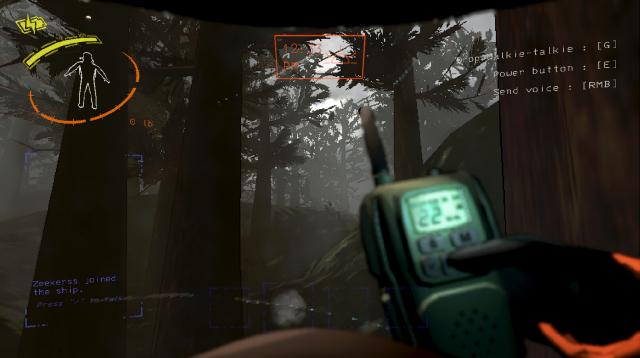
What I found was one of the most bizarre yet fascinating, well-executed, and unique gaming concepts in recent memory. If you haven’t played Lethal Company, or seen one of the ten thousand Tik Toks about it yet, the general premise is thus: you and up to three other friends work for a company that rivals Amazon for employee safety violations. As part of your employment, you’re given a ship that can fly between moons in a solar system; each day your job is to land on one of said moons and find scrap to bring back to your ship and sell to the company. There’s a certain scrap quota that you have to meet by the end of three days, and failing to meet it within that timeframe will result in your character being ejected into space and you getting a game over screen. However, if you do make the quota, you live to work for another three days with a new, larger quota that you’ll have to meet by the time those three days are over. So on and so forth.
This is where the horror kicks into play, because the scrap you need is all hidden inside of old, abandoned buildings on the surface of the moons. While you can easily meet the first couple of quotas without venturing too far inside, eventually the amount required will necessitate fully exploring these areas, and they have their own residents that are none too pleased about you being there. Enemies ranging from random wildlife, to automatons, to outright eldritch horrors roam the halls of these buildings, and if given the opportunity they’ll try to end your treasure hunting spree. Some make their presence obvious, while others are much sneakier. Some are minor nuisances, while others can spell instant doom. On top of that, monsters become more prevalent throughout the day, adding an additional risk/reward element where staying longer can net you more treasure, but also result in your death.
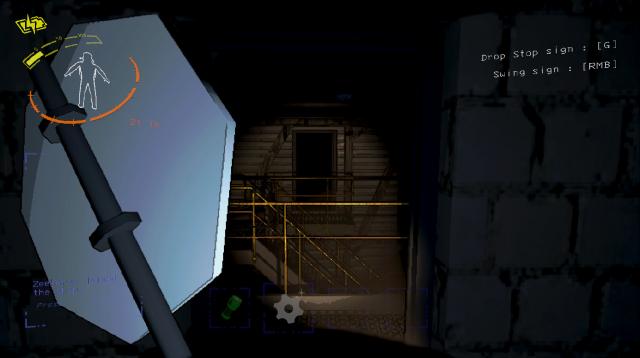
Death by monster isn’t a game over in the same way that failing to meet your quota is; if you die, your team will be penalized a small amount of money, but otherwise things proceed as usual and you just respawn at the start of the next day. In fact, in the late game, having at least one teammate die each day is relatively common, especially as you progress to tougher moons where the monsters are generally more dangerous. But it does mean that there are fewer people to find and carry scrap back to the ship, so keeping most of your team alive for as long as possible is crucial.
You aren’t completely helpless against the enemies patrolling the hallways of these areas. Your ship comes complete with a computer that can be used to monitor the surroundings of any one player at a time, including enemies and treasure, so if one person decides to stay back they can help guide and warn their teammates. As quotas go by and you earn pay checks, you can spend some of that money to buy items that can improve your survival odds, like flashlights, stun guns, melee weapons, better protection, walkie talkies, and more.
Speaking of walkie talkies, they lead into perhaps the most interesting element of the game. Lethal Company comes with built-in voice chat, but without any upgrades (like the aforementioned walkie talkies), it’s limited to what you could semi-realistically hear. Player voices only carry so far, and if you die you’ll be cut out of the chat with the living players. And let me tell you, nothing makes this game go instantly from a somewhat light-hearted co-op romp with friends to pulse-pounding horror than being around a friend and hearing their voice a moment ago, only to turn around and realize they’re not there and nobody’s talking any more.
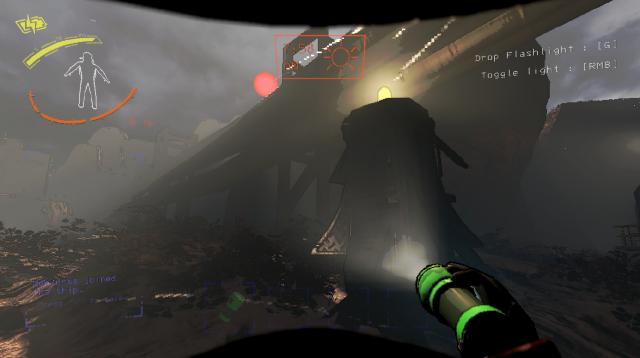
Despite the relatively simple mechanics, Lethal Company has an immense amount of depth to it, particularly when it comes to devising strategies and team roles for approaching the task of scrap collecting. You could load your squad up with weapons and walkie talkies, but that takes up valuable inventory space and means potentially having to leave some scrap behind. You could have someone stay behind to monitor cameras, but that removes a person from the loot collection process, and thus becomes another way of trading safety for reward. You could have everyone rush in to collect scrap on their own, hoping the law of averages means at least some of you make it out with a good amount of scrap. Or you could go in pairs, meaning you cover less ground but have a degree of extra safety with someone around to watch your back for potential threats.
Speaking of those threats, there’s some real variety on display here too. I don’t want to cover too many of the designs, as encountering and being terrified by new creatures is half of the horrifying fun, but suffice to say they all approach the player very differently and it’s kind of amazing how unique they are mechanically for an indie game. There are your standard horror tropes, like a giant spider that will try to trap you in its webs, but there are also some concepts that I haven’t seen executed in a horror game before. You come equipped with a Metroid Prime-esque scan visor that provides details on how to kill (or, at least, avoid death by) the baddies, which evens the odds a bit in your favor, but you’ll still need to be on high alert every time you enter into a building… as well as if you happen to hang around outside late in the day.
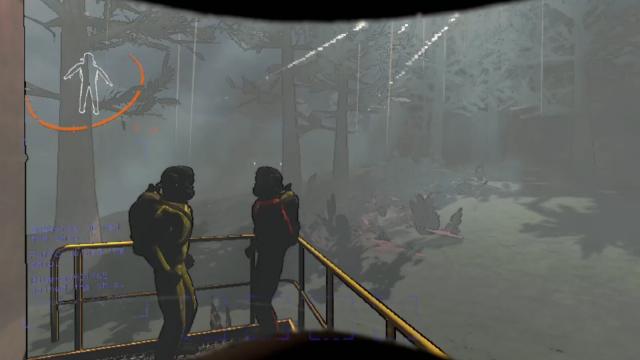
The icing on this already delicious cake are the little subtle bits of comedy thrown in as well, from the absurd run animations of your crewmates, to the music that plays when getting a purchased item delivered, to the absurdity of some of the things you can buy, like the jetpack that absolutely launches you into the air. Lethal Company in general does a great job of inserting just enough comedy to make things entertaining and play off of the cartoonishly evil corporation theme, without taking away from the actual fear of the experience.
There are a few nitpicks, of course, and I wouldn’t be the buzzkill that I am without harping on them. Lethal Company has to rely on randomly generated level designs for the buildings in order to keep return trips to moons fresh, and a bit more work could probably be done to ensure that players don’t get instantly hosed (like making sure a turret can’t spawn right in front of the main entrance). I think the game could also benefit from some balancing of its weather effects and outside mobs, as they can easily kill a whole run. And, while I’m complaining, there could stand to be a bit more visual variety within the buildings; there are only two types of interior, and one shows up much more frequently than the other.
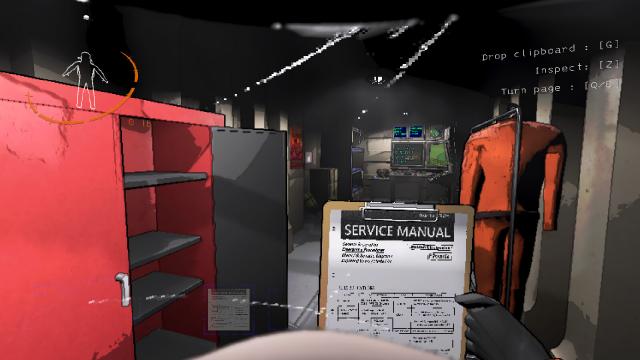
Still, developer Zeekerss has done what, up to this point, I frankly didn’t think was possible, which is make a co-op game that’s absolutely terrifying. And, given that it’s only just entered Early Access, there’s plenty of time for new additions, balance adjustments, and other fixes to come through. Lethal Company is genuinely something special in the works, and if you have any interest in horror or multiplayer strategy games, and you have a group of friends you can play with (or you don’t mind hopping in a lobby with strangers), you absolutely owe it to yourself to pick it up and try it out. For only $10 on Steam, it’s beyond a steal.
More Articles
This post was originally published on this site be sure to check out more of their content.



